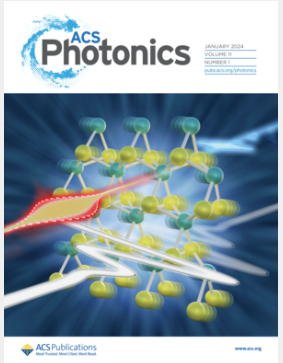When Federated Learning Meets Privacy-Preserving Computation
IF 6.5
1区 物理与天体物理
Q1 MATERIALS SCIENCE, MULTIDISCIPLINARY
引用次数: 0
Abstract
Nowadays, with the development of artificial intelligence (AI), privacy issues attract wide attention from society and individuals. It is desirable to make the data available but invisible, i.e., to realize data analysis and calculation without disclosing the data to unauthorized entities. Federated learning (FL) has emerged as a promising privacy-preserving computation method for AI. However, new privacy issues have arisen in FL-based application because various inference attacks can still infer relevant information about the raw data from local models or gradients. This will directly lead to the privacy disclosure. Therefore, it is critical to resist these attacks to achieve complete privacy-preserving computation. In light of the overwhelming variety and a multitude of privacy-preserving computation protocols, we survey these protocols from a series of perspectives to supply better comprehension for researchers and scholars. Concretely, the classification of attacks is discussed including four kinds of inference attacks as well as malicious server and poisoning attack. Besides, this paper systematically captures the state of the art of privacy-preserving computation protocols by analyzing the design rationale, reproducing the experiment of classic schemes, and evaluating all discussed protocols in terms of efficiency and security properties. Finally, this survey identifies a number of interesting future directions.当联合学习遇上隐私保护计算
如今,随着人工智能(AI)的发展,隐私问题引起了社会和个人的广泛关注。让数据可用但不可见,即在不向未经授权的实体泄露数据的情况下实现数据分析和计算,是人们所希望的。联合学习(FL)已成为人工智能领域一种有前景的隐私保护计算方法。然而,由于各种推理攻击仍能从局部模型或梯度中推断出原始数据的相关信息,因此在基于联合学习的应用中出现了新的隐私问题。这将直接导致隐私泄露。因此,抵御这些攻击对于实现完全的隐私保护计算至关重要。鉴于隐私保护计算协议种类繁多、数量巨大,我们从一系列角度对这些协议进行了研究,以便研究人员和学者更好地理解。具体来说,本文讨论了攻击的分类,包括四种推理攻击以及恶意服务器和中毒攻击。此外,本文还通过分析隐私保护计算协议的设计原理、重现经典方案的实验,以及从效率和安全性能方面评估所有讨论过的协议,系统地把握了隐私保护计算协议的最新发展状况。最后,本调查报告指出了一些令人感兴趣的未来发展方向。
本文章由计算机程序翻译,如有差异,请以英文原文为准。
求助全文
约1分钟内获得全文
求助全文
来源期刊

ACS Photonics
NANOSCIENCE & NANOTECHNOLOGY-MATERIALS SCIENCE, MULTIDISCIPLINARY
CiteScore
11.90
自引率
5.70%
发文量
438
审稿时长
2.3 months
期刊介绍:
Published as soon as accepted and summarized in monthly issues, ACS Photonics will publish Research Articles, Letters, Perspectives, and Reviews, to encompass the full scope of published research in this field.
 求助内容:
求助内容: 应助结果提醒方式:
应助结果提醒方式:


